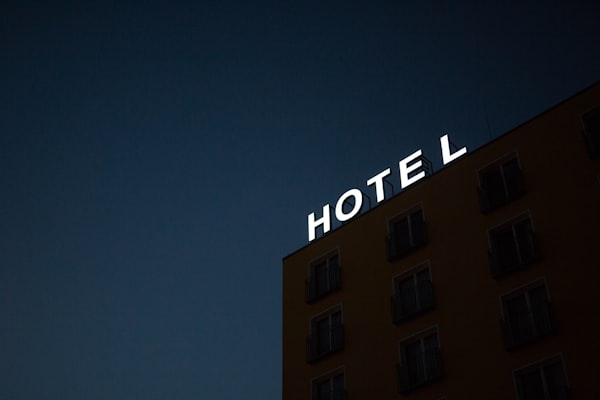In recent years, the implementation of innovative technologies has transformed the way hotels operate. Among these innovations, predictive analytics has emerged as a game-changer for hoteliers seeking to streamline their operations, enhance the guest experience and remain competitive in a rapidly changing landscape. To stay competitive and deliver exceptional experiences, hotels must adapt quickly to these changing tides.
In this blog article, we will explore the power of predictive analytics in the hospitality industry and how hoteliers can use real-time guest data to make more accurate staffing plans, reduce costs and deliver a superior guest experience.
Understanding predictive analytics in hospitality
Predictive analytics is the process of using historical data, statistical algorithms, and machine learning techniques to identify the likelihood of future outcomes. In the hospitality industry, this means using data to anticipate guest behaviour, preferences and booking trends. Hoteliers can use this information to make informed decisions that optimise their operations. These predictions can range from predicting occupancy rates to tailoring the guest experience based on their preferences.
For example, predictive analytics can analyse a wide range of data, including guest preferences, booking patterns and seasonal trends. This information helps hotel managers anticipate busy times, plan special offers or promotions, and personalise the guest experience accordingly.
Application of predictive analytics in the hotel industry
Predictive analytics has found a significant role in the hotel industry for several purposes:
1. Guest preferences:
Hotels are repositories of vast amounts of data related to guest preferences, including room types, amenities and dining options. By understanding what guests want, hotels can provide a more personalised experience, ultimately increasing guest satisfaction and loyalty.
2. Booking patterns:
By analysing historical booking data, hotels can anticipate peak booking periods. Armed with this knowledge, they can optimise pricing strategies, tailor marketing efforts and efficiently manage staff scheduling to meet demand.
3. Seasonal trends:
Predictive analytics helps hotels adapt to seasonal variations in demand. For example, they can predict which amenities guests are more likely to use during different seasons and adjust their offerings accordingly.
The importance of real-time guest data
While historical data is valuable, real-time guest data is a game changer. It allows hotels to make immediate, data-driven decisions. This could include things like recognising a guest's previous requests at check-in, offering customised amenities, and even changing room assignments based on current occupancy and guest profiles.
Improve workforce planning and cost efficiency
One of the most significant benefits of predictive analytics is its impact on staffing. By analysing booking patterns and expected occupancy rates, hotels can optimise staffing levels. This prevents overstaffing during slow periods and ensures adequate coverage during peak periods.
Personalisation for every guest
Predictive analytics enables hotels to create personalised experiences for each guest. By analysing data on past stays and preferences, hotels can make tailored recommendations and offer customised services.
NeedNect Solutions is building the bridge between travellers and hospitality. The platform for hotels can help hotels tailor services to individual guest preferences, even for first-time visitors. This technology helps hotels anticipate guest needs and preferences and personalise services accordingly, making each guest's stay memorable and unique.
The future of hotel operations
There are several trends and emerging technologies as technology continues to advance:
- IoT Integration: Hotels are increasingly using the Internet of Things (IoT) to collect real-time data from room amenities, leading to more efficient resource allocation.
- Machine Learning: The use of machine learning algorithms to predict guest behaviour is becoming increasingly common. These algorithms can help with personalisation, pricing and demand forecasting.
- Blockchain: Blockchain technology is being explored to improve data security, which is critical when handling guest information.
- Chatbots and AI: Chatbots powered by artificial intelligence are helping hotels respond to guest queries, make recommendations, and even handle reservations.
Predictive analytics make hotel operations more efficient, personalised and cost-effective. As technology continues to evolve, hoteliers must embrace these innovations to remain competitive in an ever-changing industry. By harnessing the power of data, hotels can unlock new opportunities, create memorable guest experiences and maintain their position as industry leaders.
Key takeaways
Some key takeaways at the end:
- Predictive analytics uses historical data and statistical algorithms to make data-driven decisions and predictions, providing insights into guest preferences, booking patterns and seasonal trends.
- Real-time guest data is a game-changer, enabling hotels to make immediate, personalised decisions that ultimately improve guest satisfaction and increase revenue.
- Predictive analytics improves cost efficiency by optimising staff scheduling and resource allocation, saving costs without compromising service quality.
- Personalisation through predictive analytics enables hotels to tailor the guest experience, increasing guest satisfaction and loyalty.
- The future of hotel operations lies in emerging technologies such as IoT, machine learning, blockchain and AI, which will further enhance the capabilities of predictive analytics.
In conclusion, predictive analytics is a transformative force in the hotel industry, offering a wide range of benefits from cost savings to personalised guest experiences. It's not just a trend, it's the future of hotel operations. By embracing these technological advancements and harnessing the power of data, hotels can thrive in an increasingly competitive market and provide guests with memorable and satisfying experiences that keep them coming back. In a world where guests have increasingly high expectations, predictive analytics has become a necessity for hotels that want to thrive.
To learn more about how NeedNect Solutions can help your hotel harness the power of predictive analytics, please visit our website here.
Improve your guest experience, reduce costs and transform your hotel operations with the latest predictive analytics technology.







